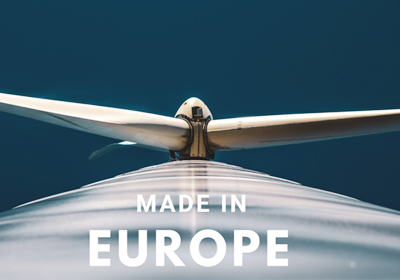
On June 20, 2023, the European Commission tabled a proposal for a regulation establishing a new strategic technologies for Europe platform (STEP) to support the development and manufacturing of digital technology, clean technology, biotechnology, etc. It aims to strengthen related industrial chains and value chain to meet the challenges of green and digital transformation and reduce the EU’s dependence on other countries and regions in strategic technology areas. STEP would rely on the reprogramming of funds under existing EU instruments. It would also come with an additional budget.
EU industries, despite their inherent resilience, face challenges such as high inflation, labor shortages, supply chain disruptions, continued rise in interest rates, soaring energy costs and raw material prices. At the same time, the global division of labor in the industrial chain is becoming increasingly detailed, and competition is fierce.
Now the EU hopes to promote the optimization of industrial structure through targeted investment. The establishment of the European strategic technology platform will accelerate the development and progress of strategic technologies, expand industrial scale and promote the coordinated development of the industrial chain (including key raw materials, production equipment, key components, and final products), and cultivate relevant talents and labor force. In addition, it will also help companies seize opportunities, build resilience and achieve green and digital transformation goal.
The critical technologies concerned would cover the following fields:
Ø deep and digital technologies, including microelectronics, high-performance computing, quantum technologies, cloud and edge computing, artificial intelligence, cybersecurity technologies, robotics, 5G and advanced connectivity and virtual realities, including in the defence and aerospace sectors;
Ø clean technologies, including renewable energy, electricity and heat storage, heat pumps, the electricity grid, renewable fuels of non-biological origin, sustainable alternative fuels, electrolysers and fuel cells, carbon capture, utilisation and storage, energy efficiency, hydrogen and its related infrastructure, smart energy solutions, water purification and desalination, advanced materials such as nanomaterials, composites and future clean construction materials, and technologies for the sustainable extraction and processing of critical raw materials;
Ø biotechnologies, including biomolecules, pharmaceuticals and medical technologies, crop and industrial biotechnology, and biomanufacturing.
The technologies would be deemed critical if they meet at least one of the following criteria:
Ø having a cutting-edge element with high economic potential for the single market;
Ø contributing to the reduction and prevention of the EU's strategic dependencies.
Financial Support
STEP would rely on the reprogramming of funds under existing EU instruments and on an additional budget of €10 billion. Overall, the Commission estimates that STEP could leverage up to €160 billion of investment, of which €110 billion would be triggered by the top-up. The top-up amount is broken down as follows:
Ø €5 billion to increase the endowment of the Innovation Fund. These funds would be made available from 1 January 2024 to 31 December 2027 to support investments concerning the development or manufacturing, or strengthening of the value chains, of clean technologies in Member States whose average GDP per capita is below the average of the EU-27, based on the period 2015-2017.
Ø €3 billion to expand the EU guarantee for the EU compartment under InvestEU to €7.5 billion (with a 40 % provisioning rate). A 'fifth window', comprising investments contributing to the STEP objectives, would be set up.
Ø €1.5 billion to enlarge the European Defence Fund.
Ø €500 million to reinforce the envelope of the European Innovation Council (EIC) under Horizon Europe. The EIC Accelerator could fund equityonly support required for scale-up to non-bankable small and medium-sized enterprises (SMEs), including start-ups, and non-bankable small mid-caps carrying out breakthrough and disruptive non-bankable innovation in the critical technologies supported by STEP. An additional €2.13 billion would come from redeployments and de-commitments.
In addition, the European Commission also encourages its member states to re-evaluate the priorities of various programs, increase the priority of the STEP program, and allocate funds for STEP. Overall, the EU estimates that the total new investment achieved through the establishment of a European strategic technology platform can reach 160 billion euros.
Supporting measures
In order to cooperate with STEP, the EU will also establish a sovereign portal and establish a ‘sovereignty seal’.
The sovereign portal will provide one-stop services to project sponsors, help project sponsors and financing companies connect with STEP investment and financing opportunities, show case projects that have successfully received STEP funding, and promote exchanges and learning between projects.
The ‘sovereignty seal’ would be awarded to any action contributing to any of the STEP objectives, provided the action meets some minimum quality requirements. These refer in particular to the eligibility, exclusion and award criteria that had been defined within calls for proposals under establishing Horizon Europe, establishing the Digital Europe programme, establishing the European Defence Fund, establishing the EU4Health programme, and Commission Delegated on the operation of the Innovation Fund. This seal could be used as a quality label, specifically for receiving support for a project under another EU fund or programme, or for financing projects through cumulative or combined funding with another EU instrument.